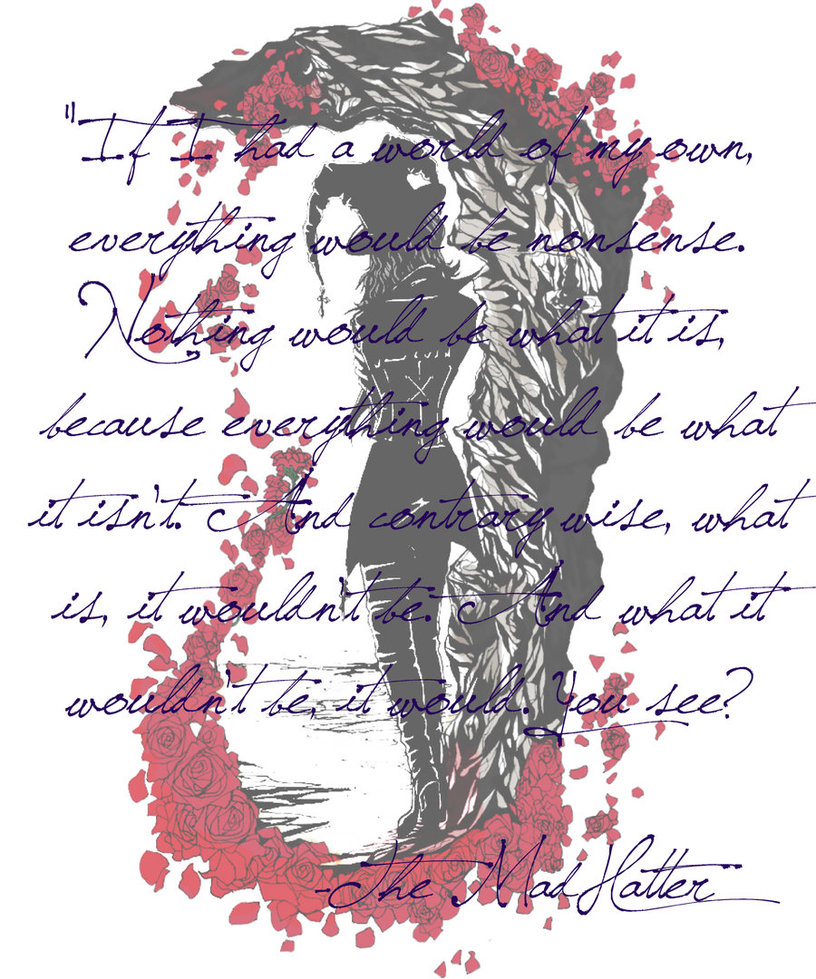
Hence came the phrases, “ Mad as a hatter,” “ Works like a hatter,” and “ Drunk as a hatter.” In the palmy days of the high-priced beavers, hatters earned good wages and were invariably drunk and noisy all the forepart of the week, working like slaves during the last days. The following explanation of ( as) mad as a hatter given by the editor of The Framlingham Weekly News (Suffolk) of 16 th January 1864 is open to question, but what is interesting is that he relates it to two other phrases and associates it with no disease whatsoever:

If the phrase did originally refer to the hat makers’ disease, some of the contemporaries would certainly have noticed the connexion.įurthermore, in the 19 th century, the word hatter was used in several other similes expressing notions different from that of insanity: drunk as a hatter, to work like a hatter, to lie like a hatter, to go at like a hatter, to do it like a hatter, and, perhaps, to hit like a hatter. It has often been said that the phrase alludes to the effects of mercury poisoning sometimes formerly suffered by hat-makers as a result of the use of mercurous nitrate in the manufacture of felt hats.īut I have doubts as to the validity of this explanation, because neither the contexts in which the early instances of ( as) mad as a hatter appear nor the persons who in the 19 th century tried to make sense of the phrase associated it with the manufacture of hats, let alone with mercury poisoning. Why hatters are said to be madder than other Gentlemen, we know not. The phrase also appeared in The Dublin Evening Post of 7 th March 1835, with the following remark: The Morning Post (London) of 3 rd February 1835 reported that during a trial, the phrase was used by “ a man named Driscol, an emerald “gem” of the first water”. The phrase also appeared in a poem published in The Evening Packet, and Correspondent (Dublin) of 29 th April 1834. “Oh it’s only me, and it’s time for me to go, you know yourself, Terry,” said the deserter-“and the wife will be as mad as a hatter if I stay out longer.” A story titled The Sheebeen House contains the following: Hand me a segar.Īnother early occurrence of the phrase is found in Legends and Stories of Ireland (London, 1834), by the Irish author Samuel Lover (1797-1868). – Tickler (aside to Shepherd): He’s raving. – North: Many years-I was Sultan of Bello for a long period, until dethroned by an act of the grossest injustice but I intend to expose the traitorous conspirators to the indignation of an outraged world. N° XLIV., published in Blackwood’s Edinburgh Magazine of June 1829 (Odoherty is an Irish name):

It is then recorded in Noctes Ambrosianæ. The fees upon the elevation of Lord Norbury, amount, it appears, to about 1,500l, which his Lordship must pay, and consequently, as the vulgar say, “ he is as mad as a hatter.”

The earliest instance that I have found is from The Belfast Commercial Chronicle (Ireland) of 18 th June 1827: The phrase ( as) mad as a hatter means completely insane.Īll of its early uses are associated with Ireland. The phrase ( as) mad as a March hare is one of the sources of the March Hare, while ( as) mad as a hatter is likely to be among the origins of the Hatter-whom, however, the author never calls the Mad Hatter. In Alice’s Adventures in Wonderland (1865), by Lewis Carroll (Charles Lutwidge Dodgson – 1832-98), both the March Hare and the Hatter are characters associated with madness: the Cheshire Cat refers to them as “ both mad”-although he adds “ we’re all mad here”-and this is reinforced by the fact that the March Hare attends the tea party that the Hatter gives. Illustrations by John Tenniel (1820-1914) for Alice’s Adventures in Wonderland (1865) Hatter arrives hastily in court to testify


 0 kommentar(er)
0 kommentar(er)
